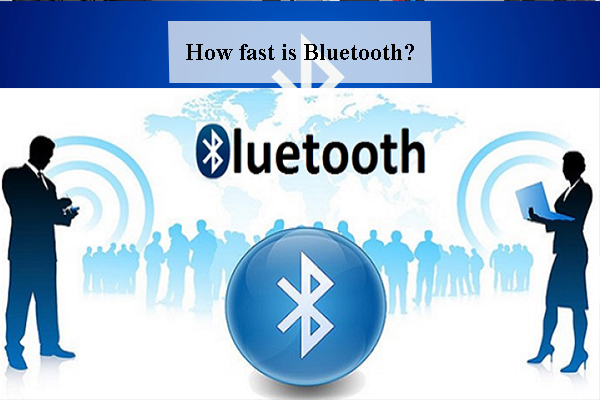Table of Contents [Show]
Of course, the actual speed you get will depend on a number of factors, including the devices you’re using and the environment you’re in. In general, though, you can expect Bluetooth to be plenty fast for most of your needs.
Bluetooth is a wireless technology that allows two devices to connect and share data. The range of Bluetooth varies depending on the device and environment, but it typically has a range of about 30 feet.
Here are a few tips to help you use your headphones without Bluetooth:
If you're looking for a way to ditch the earphones and go wireless, Bluetooth headphones are a great option.
Yes, there are wireless headphones that don't use Bluetooth.
Though many people now use wireless earbuds, there is still some debate about whether or not they are safe.
Apple earbuds are a popular choice for headphones, but are they worth the price? There are a few things to consider when making your decision.
earbuds vs headphones, which is better?
Do you want earbuds or earphones? What’s the difference, and which is better?
The answer is yes and no. It depends on a few factors,
Apple’s AirPods have become one of the most popular wireless earbud options on the market. There are a few reasons for this.
When it comes to headphones, there are two main types: Bluetooth and wireless. Both have their own pros and cons, so it’s important to know the difference before making a purchase.
How far does Bluetooth reach?
Bluetooth is a wireless technology that allows two devices to connect and share data. The range of Bluetooth varies depending on the device and environment, but it typically has a range of about 30 feet.
However, there are factors that can affect the range of Bluetooth, such as walls or other objects that can block the signal. Despite its limited range, Bluetooth is a popular technology for connecting devices because it is typically very reliable and easy to use.
Yes, Bluetooth has competition. Its main competitor is Wi-Fi, which offers a few advantages over Bluetooth. Wi-Fi is faster and has a wider range, so it can be used for streaming video and audio. It also uses less power, so your battery will last longer if you use Wi-Fi instead of Bluetooth.
No, Bluetooth is not stronger than Wi-Fi. Wi-Fi has a higher range and can carry more data than Bluetooth. Bluetooth is better suited for short-range connections between devices.
Does Bluetooth have competition?
Yes, Bluetooth has competition. Its main competitor is Wi-Fi, which offers a few advantages over Bluetooth. Wi-Fi is faster and has a wider range, so it can be used for streaming video and audio. It also uses less power, so your battery will last longer if you use Wi-Fi instead of Bluetooth.
Is Bluetooth stronger than Wi-Fi?
No, Bluetooth is not stronger than Wi-Fi. Wi-Fi has a higher range and can carry more data than Bluetooth. Bluetooth is better suited for short-range connections between devices.
In recent years, there has been a debate over which is better when it comes to wireless technology- Bluetooth or Wi-Fi. While they both have their advantages, it seems that Bluetooth may be the stronger of the two.
One of the main advantages that Bluetooth has over Wi-Fi is that it uses less power. This is because Wi-Fi requires more power to maintain a constant connection, whereas Bluetooth only needs to connect for short periods of time. This means that devices with Bluetooth can battery life.
Another advantage of Bluetooth is that it is not as susceptible to interference as Wi-Fi. This is because Bluetooth uses a frequency hopping algorithm which helps to reduce interference from other devices. Wi-Fi, on the other hand, does not use this algorithm and can therefore be disrupted by other devices using the same frequency.
Is Bluetooth more secure than Wi-Fi?
Is Bluetooth more secure than Wi-Fi?
Is Bluetooth more secure than Wi-Fi?
When it comes to security, Bluetooth has the advantage over Wi-Fi. That’s because Bluetooth uses a technique called frequency hopping spread spectrum (FHSS), which makes it much harder for unauthorized devices to intercept data being transmitted. Wi-Fi, on the other hand, uses a simpler technology called direct sequence spread spectrum (DSSS), which is more susceptible to interception.
Bluetooth also has built-in security features that make it more difficult to hack into devices than Wi-Fi. For example, Bluetooth devices typically use something called pairing to establish a connection with each other.
In short, Bluetooth gets money by charging companies licensing fees to use its technology.
How does Bluetooth get money?
In short, Bluetooth gets money by charging companies licensing fees to use its technology.
Here’s a more detailed explanation: Bluetooth is a wireless communications protocol that allows devices to connect to each other. It’s commonly used in things like headphones, keyboards and mice.
The technology is managed by the Bluetooth Special Interest Group (SIG), a not-for-profit trade association.
To become a member of the Bluetooth SIG, companies have to pay an annual membership fee. They also have to pay royalties for every product they sell that uses Bluetooth technology. The royalties are calculated based on the number of units sold and the type of product.
There are a few reasons why Bluetooth devices are so costly and tend to be more expensive than other types of electronics.
Why are Bluetooth devices so costly?
There are a few reasons why Bluetooth devices are so costly and tend to be more expensive than other types of electronics.
- One reason is that the technology is still relatively new compared to other wireless technologies like WiFi. This means that there is still a lot of room for improvement and development, which can add to the cost.
- In addition, Bluetooth devices often have to be certified by the Bluetooth SIG in order to ensure compatibility with other devices, which can also add to the cost.
- Another reason for the high cost of Bluetooth devices is that they often include additional features and functionality beyond just being able to connect wirelessly.
How to use Bluetooth headphones without Bluetooth?
Here are a few tips to help you use your headphones without Bluetooth:
- Make sure your device is compatible with your headphones. Some devices are not compatible with certain types of headphones.
- Check the battery life of your headphones. If the batteries are dead, they will not be able to connect to your device.
- Make sure the Bluetooth connection on your device is turned on. If it's not, your headphones will not be able to connect.
- Try moving closer to your device. The further away you are, the weaker the signal will be and the less likely it is that your headphones will stay connected.
- Check for obstructions between you and your device.
What can I use instead of earphones?
If you're looking for a way to ditch the earphones and go wireless, Bluetooth headphones are a great option.
Here are a few things to keep in mind when shopping for Bluetooth headphones:
- Battery life: Most Bluetooth headphones will last for around 4-5 hours on a single charge. If you're looking for something that will last all day, make sure to find a pair with good battery life.
- Sound quality: When it comes to sound quality, Bluetooth headphones can vary greatly. Make sure to read reviews before making your purchase to ensure you're getting a good quality product.
- Comfort: Since you'll be wearing these headphones for long periods of time, comfort is key. Look for headphones with soft, comfortable ear cushions and an adjustable headband.
Are there wireless headphones that don't use Bluetooth?
Yes, there are wireless headphones that don't use Bluetooth.
- These headphones use a technology called radio frequency (RF). RF headphones are different from Bluetooth headphones in a few ways.
- First, RF uses radio waves to transmit sound, while Bluetooth uses infrared light. This means that RF headphones can be used anywhere, even in places where there is no line of sight between the headphone and the audio source.
- Second, RF headphones generally have a longer range than Bluetooth headphones. This means that you can walk around freely without worrying about losing your connection.
- Finally, RF headphones tend to be more expensive than Bluetooth headphones.
What are the pros and cons of headphones vs earbuds?
When it comes to headphones vs earbuds, there are pros and cons to both.
There are a few reasons why professional athletes prefer earbuds or headphones over traditional speaker systems.
- Headphones tend to be more expensive than earbuds, but they also offer better sound quality and noise cancellation.
- Earbuds are more convenient and portable, but they can be less comfortable to wear for long periods of time.
Why do pros use earbuds and headphones?
There are a few reasons why professional athletes prefer earbuds or headphones over traditional speaker systems.
- First, they provide better sound quality, which is important when trying to focus on a game or event.
- Second, they block out outside noise, allowing the athlete to concentrate on their own performance.
- Third, they are portable and easy to carry around, making them ideal for use during travel and in between games.
Are wireless earbuds safe?
Though many people now use wireless earbuds, there is still some debate about whether or not they are safe.
- Some worry that the electromagnetic radiation emitted by the earbuds could be harmful, while others argue that the amount of radiation is too low to cause any damage. So far, there is no definitive answer to the question of whether or not wireless earbuds are safe.
- However, some studies have suggested that there may be a small risk associated with their use. If you are concerned about the potential risks, you may want to limit your exposure by using wired headphones instead.
Are Apple earbuds worth it?
Apple earbuds are a popular choice for headphones, but are they worth the price? There are a few things to consider when making your decision.
- Sound quality is an important factor to many people when choosing headphones. Apple earbuds boast high-quality audio, making them a great choice for music lovers.
- They also have a sleek design that is comfortable to wear for long periods of time.
- Another thing to consider is compatibility. Apple earbuds are designed to work with Apple devices, so if you don't have an iPhone or iPad, you may want to choose another option. Some Android devices are compatible with Apple earbuds, but not all of them. Finally, cost is always a factor when making any purchase.
- Apple earbuds are more expensive than some other brands, but they offer features that justify the price tag for many people.
Are earbuds or headphones better?
earbuds vs headphones, which is better?
There are a lot of different types of headphones on the market these days. But which ones are the best for you? It really depends on what you’re looking for.
Here’s a quick rundown of the pros and cons of earbuds vs headphones.
- Earbuds are small and compact, making them easy to carry around with you. They’re also generally less expensive than headphones. But they can be uncomfortable to wear for long periods of time, and they don’t offer as much noise cancellation as headphones do.
- Headphones are bigger and bulkier than earbuds, but they’re more comfortable to wear and they offer better sound quality and noise cancellation. They’re also more expensive than earbuds, though there are some cheaper options out there.
Which is better earphones or earbuds?
Do you want earbuds or earphones? What’s the difference, and which is better?
- Earbuds are small and discreet, and they fit snugly into your ear. They’re ideal for use when you’re on the go and won’t get in the way if you’re wearing a hat or a helmet.
- Earphones are larger than earbuds, and they sit outside of your ear. They can be more comfortable for some people, and they offer better sound quality.
Do AirPods fall out easily?
The answer is yes and no. It depends on a few factors,
- including the size and shape of your ears,
- how active you are, and
- how tight the fit is.
- First, make sure that you are wearing the correct size tips. If the tips are too big or too small, they can cause the AirPods to fall out.
- Second, try adjusting the tightness of the ear hooks. If they are too loose, the AirPods can fall out.
- Finally, make sure that your AirPods are clean. If there is any dirt or debris on them, it can cause them to slip out of your ears.
Why are AirPods better than other wireless earbuds?
Apple’s AirPods have become one of the most popular wireless earbud options on the market. There are a few reasons for this.
- One is that they’re very easy to use thanks to their seamless integration with Apple devices. If you have an iPhone, iPad, or iPod Touch, you can simply open the case and hold it near your device to connect.
- Another reason AirPods are so popular is that they offer great sound quality. Despite their small size, they deliver surprisingly rich and detailed audio. And because they sit snugly in your ears, they stay securely in place even when you’re moving around a lot.
- Finally, AirPods offer impressive battery life.
What's the difference between Bluetooth and wireless headphones?
When it comes to headphones, there are two main types: Bluetooth and wireless. Both have their own pros and cons, so it’s important to know the difference before making a purchase.
- Wireless headphones
- Wireless headphones are typically less expensive than Bluetooth headphones and
- don’t require a separate adapter.
- However, they do require batteries, which means you’ll need to keep an eye on the charge.
- Additionally, wireless headphones can be susceptible to interference from other devices, such as microwaves and cordless phones.
- Bluetooth headphones
- Bluetooth headphones are more expensive than wireless headphones,
- Bluetooth headphones don’t require batteries or an adapter.
- Bluetooth headphones also tend to have better sound quality than wireless headphones.
- However, Bluetooth headphones can be tricky to pair with some devices and they may not work with all types of music files.
Why is Bluetooth not charged any money for its usage?
- Bluetooth is a technology that allows devices to wirelessly connect to each other.
- It's a popular way to connect devices like headphones, keyboards, and mice to computers and phones.
- One reason Bluetooth doesn't cost anything to use is that it's an open standard.
- That means anyone can develop products that work with Bluetooth without having to pay a licensing fee.
- Bluetooth is also built into most phones and computers, so there's no need for an extra adapter or dongle.
- Another reason Bluetooth doesn't cost anything is that it uses very little power, so manufacturers don't have to include a special battery or charger.
- Finally, Bluetooth has been around for over 20 years, so the technology is well-established and costs have come down over time.











0 Comments:
Post a Comment